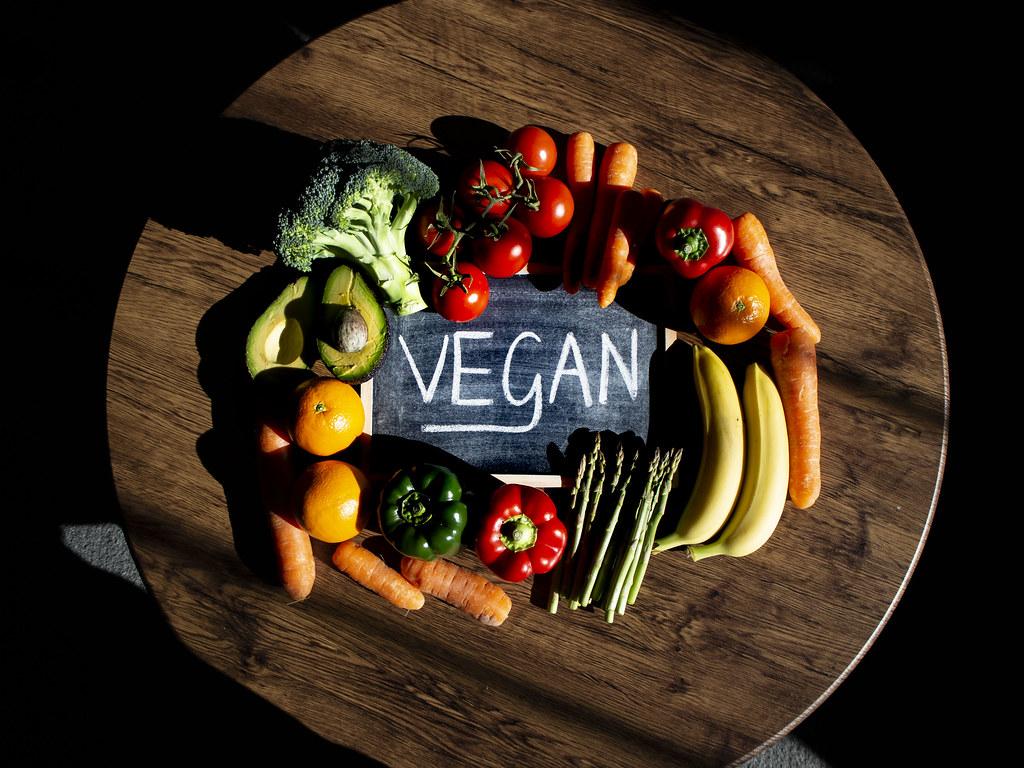If you eat meat religiously, why not try plant-based meat? When avid meat eaters are presented with the opportunity to try plant-based meat, they have the perception that it’s a sad excuse for meat.
As meat demand increases, Americans continue to ignore the benefits of plant-based meat.
In fact, the U.S. Department of Agriculture estimates that meat makes up 32 percent of the American diet.
What difference does a fake or a real burger make anyway?
In terms of animal rights and environmental impact, the difference only becomes larger.
The two leading companies in the space of artificial animal products are Impossible Foods and Beyond Meat. Both companies have labs to research and refine the likeness of their artificial meat down to the look, taste and texture of the real product.
A 2022 article from Harvard Health Publishing explains that both Beyond and Impossible burgers are a great source of protein, vitamins and minerals.
Although slightly higher in saturated fat, artificial meat offers an environmentally sustainable option for meat eaters and an additional source of protein for vegetarians.
With that said, if you were to take a plant-based diet somewhat seriously, artificial meat can be beneficial for meals consisting of vegetables, fruits and a variety of carbohydrates.
According to the National Institute of Health, plant-based meals with artificial meat effectively supply nutrients to the body. Because of the soy ingredients, it’s also easier for blood to reach tissue and muscles.
In fact, many high-performance athletes have taken on a plant-based diet because it can reduce measures of inflammation, making it easier to recover after workouts. The list includes but is not limited to Kyrie Irving, Serena and Venus Williams, Nate Diaz and Colin Kaepernick.
Grocery stores also make it easy for consumers to try a variety of plant-based meat options besides burgers. There are plant-based sausages, beef crumbles, chicken nuggets and more to incorporate into your favorite meals.
Many restaurants and fast food chains have also added Beyond and Impossible options to account for vegetarian demand.
Another benefit for large-scale producers is the environmental aspect of manufacturing.
In fact, in 2018, Beyond Meat partnered with the University of Michigan to confirm the environmental footprint of artificial meat. They concluded that a Beyond burger requires 99 percent less water, 93 percent less land and nearly 50 percent less energy than a typical hamburger.
These statistics beg the question: what makes plant-based meat much more sustainable than the real product? The answer lies in how huge agribusiness corporations and meat producers raise animals.
The United States Environmental Protection Agency found that 18 percent of global emissions come from the agriculture sector. Half of these emissions come from raising livestock and producing meat.
To put that into perspective, total agricultural emissions are equivalent to the emissions from all of the world’s land vehicles, airplanes and ships combined.
Additionally, as factory farms are used to mass herd animals, the increasing demand for meat not only kills more animals but also requires more land, food and water for these farms.
Peter Singer, Ira W. DeCamp Professor of Bioethics at Princeton University, stresses that 40 percent of tropical forests have been burned to create pastures and animal grazing.
The deforestation and destruction of ecosystems result in 20 percent of global carbon emissions, impacting climate change.
Singer points out that the land used to grow crops for animals and artificial meat is much less than the land dedicated to animals in the U.S.
Essentially, if we eat the same food we feed animals, it’s a more efficient use of natural resources and can feed more people.
Despite this, since 1961, meat only continues to increase in demand as it becomes more of a commodity.
To combat this increase in demand, recent awareness and financial efforts have been made, most notably from philanthropist and former Microsoft CEO Bill Gates.
As an investor of Beyond Meat and Impossible Foods, the Bill & Melinda Gates Foundation has financially supported other lab-grown meat startups.
Despite whatever breakthroughs these companies make, Gates is reluctant that the general public will agree to stop eating meat for the greater good of the environment.
Essentially the choice is yours. Even independent, consistent efforts drive down meat demand.
The next time you bite into a juicy hamburger, think about the animals who have spent their lives in factory farms, never seeing a blade of grass. Think about the forests being burned down. Think about the health benefits and the future of the planet.
— By Aaryan Gandhi




